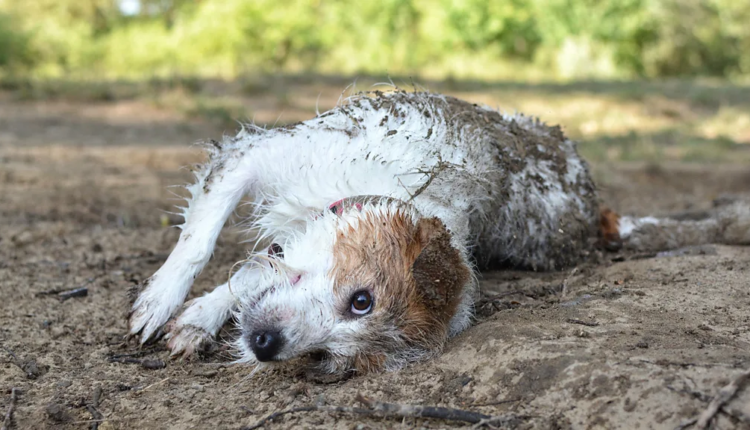Dogs have a baffling obsession with rolling in foul-smelling substances. It may be part of a form of communication we are only just starting to understand.
It would happen whenever Simon Gadbois took his border collie Zyla out on a research trip. They would be tracking the wild animals he studies in the rugged landscape of Nova Scotia, Canada, when Zyla would suddenly stop, nose to the ground. Before Gadbois could intervene, she would roll around enthusiastically. Then the smell would hit him.
“In case you have never smelt beaver poop before, it is horrible, really vile, and it stinks for weeks afterwards,” he says.
Gadbois studies the behaviour of wild wolves, foxes and coyotes in Canada and had trained Zyla to help him find the animals. But for some baffling reason, she would also delight in rubbing herself in beaver excrement on these trips.
“It was always beyond me why she would do this,” says Gadbois. “You would think it would interfere with her ability to smell and track other animals, but remarkably it did not affect her performance one bit.”
It is a situation that will be familiar to most dog owners – your beloved pet comes bounding back to you reeking of a pungent, musky stench after rolling in something terrible. Gadbois has spent a large part of his career trying to understand how dogs and other members of the canid family of animals experience the world through their noses, yet even he is baffled by their behaviour at times.
Humans first domesticated dogs from wolves up to 23,000 years ago and we have lived side-by-side with them ever since. Yet, despite this long history together, there is surprisingly little research on exactly why dogs seem to get such joy from rolling in another animal’s faeces.
One leading theory is that the predilection for smearing poo on their coats is simply an evolutionary hangover from their days as wild predators. If that’s the case, while we may have taught them to sit, stay and lie down, we apparently couldn’t suppress this stinky basic instinct.
“It may have had a very important function at some point a long time ago,” says Gadbois. “Over time that function has vanished, but they still do it.”
Source: BBC


Comments are closed.